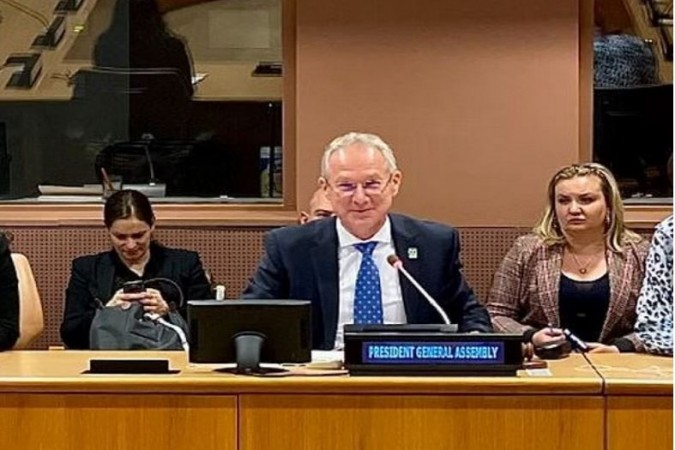
The President of the 77th session of the UN General Assembly, Csaba Korosi, will undertake an official visit to India.
The UNGA President will visit India beginning around January 29 and is planned to meet with senior government officials, according to the announcement made by his spokeswoman. From India, President Korosi will then embark on an official visit to China.
Giving more on the details of President Korosi’s visit during a press briefing, the spokeswoman said, “The first is to India, starting on around 29 January. The President will speak to the Indian Council of World Affairs, a think tank for foreign policy, and meet with senior government officials. The remaining time will be devoted to meeting with scientists and visiting a water conservation project,” the spokeswoman added.
Notably, India had already partnered with the CEO Water Mandate of the UN Global Compact to advance efforts to conserve water through reduce, reuse, and recycle.
Notably, Korosi's trip to India comes one month after his meeting with Dr. S. Jaishankar, India's minister of external affairs, in New York, when the two men spoke about a variety of global concerns. Together with UN Secretary-General Antonio Guterres, the leaders gathered at the UN headquarters to unveil the bust of Mahatma Gandhi.
It's always a pleasure to see India's External Affairs Minister Dr. S Jaishankar, Korosi said of his encounter with him. discussed UN reforms, maximising water synergies, India's G20 Presidency, and the present monthly Security Council Presidency.
As one of India's top concerns, the need of reformed multilateralism was also highlighted during their meeting. New Delhi has pushed for a reformed multilateralism that makes international organisations more accountable and inclusive in response to global circumstances.
President Korosi said, "For the UN to maintain its relevance, its raison d'être, for it to exist, it must give answers for its end-users," in his remarks at a UNSC briefing on "Maintenance of International Peace & Security: New Direction for Reformed Multilateralism. a reference to all eight billion of them. People we work with do not neatly categorise their lives into "human rights," "development," and "peace" boxes. Individually and collectively, it is our duty to address that complexity.
UN to increase aid help to Ukraine
S Jaishankar will pay a visit to Sri Lanka